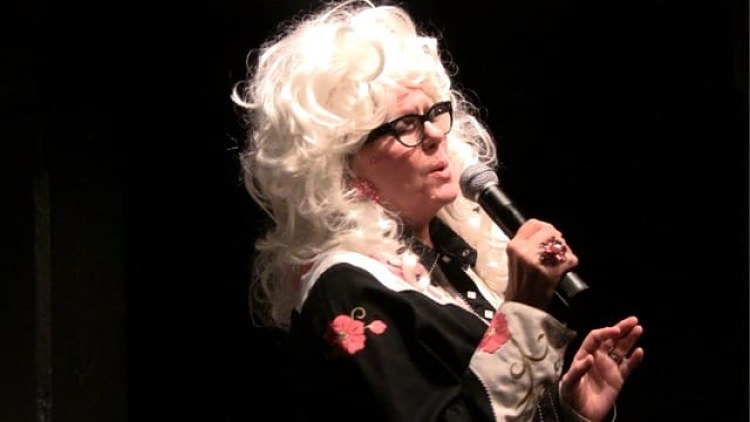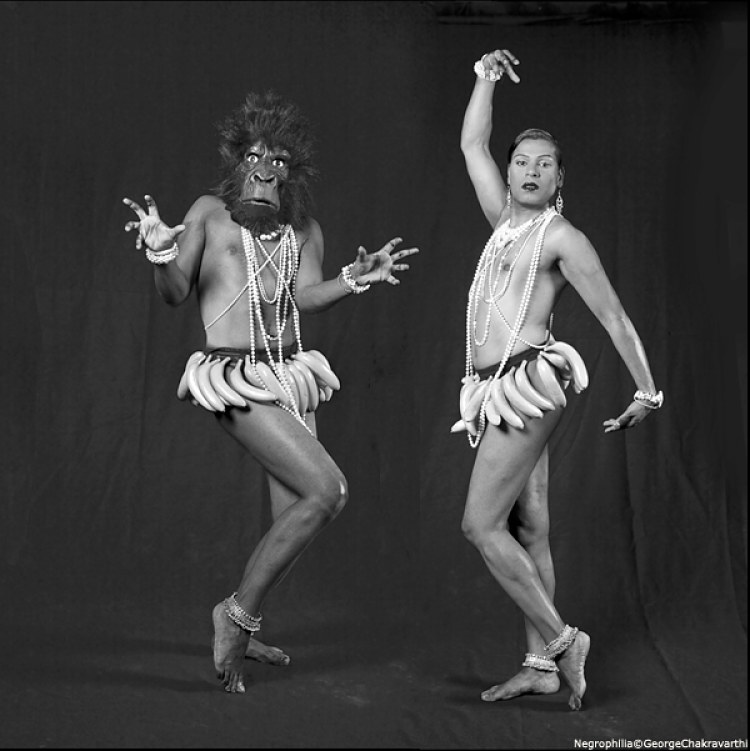NEW YORK CITY: No, it’s not a Bob Dylan fan event. Instead, “Just Like a Woman” is the name of a trans-Atlantic festival this coming weekend (Oct. 23–25) at Abrons Arts Center, presented by Abrons and the London-based Live Art Development Agency (LADA) and Chelsea Theatre. The festival, which is free to attend, will spotlight cutting-edge U.S. and U.K. artists who are tackling contemporary notions of race and gender, and working at the frontiers of what we might think of as “performance art.”
That label doesn’t really work anymore for Lois Keidan, cofounder and director of LADA, who said the term she prefers is “live art.” In the U.K., she says, “performance art” has become associated with “a white, Eurocentric, male visual art culture.” Live art is meant to provide a larger umbrella for work happening beyond that limited purview, encompassing what Keidan called “performance art, experimental theatre, the edges of dance, artist activism, and the edges of digital practice.”
She sees this more broadly defined practice as “a potent site of underrepresented artists and issues, particularly for women artists, black artists, queer artists, and disabled artists. It’s a space that can really offer agency.” Live art, she continued, allows artists “to write their own rules, their own languages, and have relationships with audiences that you want to have,” she notes.
The festival includes shows, lectures, panels, films, cabarets, a book launch, and opportunities for open discourse. Artists involved include Lois Weaver, Peggy Shaw, Narcissister, Christeene, Dickie Beau, Lucy Hutson, George Chakravarthi, Harold Offeh, Laura Bridgeman, and the Drakes, the Girls and the Famous Lauren Barri Holstein.
Weaver, long-time performer, director, and writer with Split Britches, will host one of her “Long Table” events at the festival. Keidan explains that the Long Table “is an open forum. Anybody can come and talk about these issues.” LADA hosted a similar event in London with Weaver, and the attendance far exceeded all expectations. “From elderly women to absolute teenagers, the real fourth wave of feminism met the first wave of feminism, and they wanted to talk to each other,” Keidan kvells.

Thematically, the roots of the festival come from a program LADA put together two years ago in Slovenia for City of Women Festival. At that time, inspired by Weaver’s work with what she calls the “hyper-femme,” Keidan says, “We thought, you know, drag’s really interesting in this context. So we put together this program on drag: women performing women, men performing men, women performing men, etc.”
Since then Keidan has seen the mainstream conversation around gender and identity explode dramatically. Only a couple of weeks ago, she notes, “Some research came out [in the U.K.] about gender fluidity among the under-25s. One in two has a fluid sense of identity. Then you have [discussions around] Caitlin Jenner and [the movie] The Danish Girl.” Keidan sees the underground work at the festival as coming at a propitious time to intersect with this shift in the general public’s dialogue around gender.
The festival will include “what we think are some of the most exciting artists doing work around representations of gender fluidity,” says Keidan. The guiding principle was to look for work that presented diverse approaches, representations, and ideas, and also “something that would provoke debate and interest audiences.”
Keidan promises the performance style of the festival is “not just the wild, crazy kind of queer stuff.” Then she laughs and concedes: “It’s predominantly the wild, crazy queer stuff. But it’s not just that.” Keidan continues, “There is difficult stuff in the [program] but it’s all very engaging.” “You’ve got people like Christeene, who is a brilliant provocateur.” Indeed, Christeene’s work has sometimes been described as drag terrorism, and by myself as “a genderqueer singer-dancer-den-mother-of-destruction, blowing up the concept of cabaret.” But Keidan is quick to add, “We’ve got other work that’s gentle.”
The work by The Girls, for example, is “not queer,” according Keidan. Their installation, Diamonds and Toads, is about looking at female archetypes. Keidan describes it as “very gentle and disturbing. They’re lying in a giant bed dressed in ornate costumes. They have on masks but you can see their eyes which just follow you around the room. It’s really eerie and creepy.”
Just Like a Woman will also address questions of intersectionality in gender performance. “Certainly very important for us are representations of racial diversity,” says Keidan. U.K. artists George Chakravarthi and Harold Offeh, and U.S. artist Narcissister, will all be performing work that addresses race.
“The piece that Harold [Offeh] is doing is called Covers, and he embodies and reenacts album covers by iconic black American divas,” says Keidan. Chakravarthi’s seven-minute piece Negrophilia! reflects and challenges “the history of racism and the history of sexism.” Says Keidan, “He takes in everything. He he turns from a gorilla into Josephine Baker in the blink of an eye. It’s amazing.”

Keidan also hopes the events will involve intergenerational questions around feminism.
“I think people can sometimes despair about the lack of intergenerational dialogue,” Keidan says. “But actually in live art we’re finding that artists do want to engage in it. Older artists really are interested in who’s coming up behind them and who’s influenced by their legacies, and younger artists are really interested in who’s gone before and who they can learn from.”
Keidan wants festival audiences to see “the politics of what is permissible and what’s possible” in live art and gender performance. The artists at the festival, she believes, can enlighten audiences on “what form ideas can take and how you can engage with them or explore them.” And it’s not just race and gender boundaries being breached this weekend: With artists from diverse backgrounds and two countries participating, Keidan hopes audiences will “take away an understanding that these ideas transcend geopolitical borders.”
Just Like a Woman takes place at Abrons Art Center Oct. 23–25. Events are free to attend but RSVPs are suggested.


